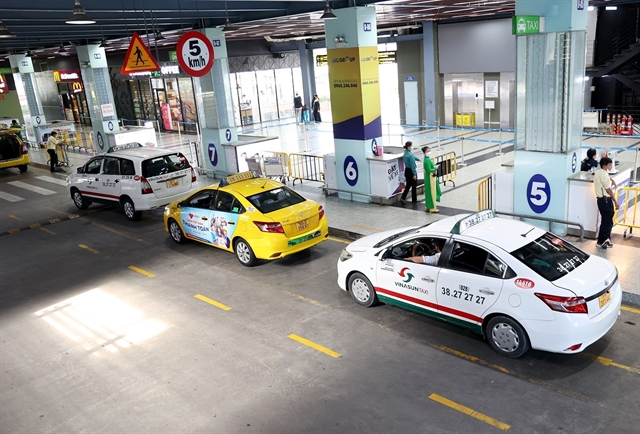The association's Deputy President, Ho Quoc Phi, noted that electric cars are widely regarded as the future of the automobile industry, offering advantages such as easy refuelling, reduced maintenance, increased safety, no need to change oil or coolant, and less engine noise.

The Hanoi Taxi Association is urging for the pilot implementation of battery-powered cabs to reduce environmental impact and stay abreast of global trends.
The association's Deputy President, Ho Quoc Phi, noted that electric cars are widely regarded as the future of the automobile industry, offering advantages such as easy refuelling, reduced maintenance, increased safety, no need to change oil or coolant, and less engine noise.
Several taxi companies in the capital have conducted surveys, tests, and preliminary evaluations on using electric vehicles in their operations to keep pace with the global transportation industry and capitalise on opportunities.
The use of electric vehicles would be an advantage in fluctuating fuel prices because of heavy dependence on the global situation and supply sources.
Meanwhile, the associations said the electricity price was quite stable, which would help taxi firms reduce costs and benefit passengers.
Nguyen Anh Quan, Director of Taxi G7 Company, the use of battery-powered cabs was an inevitable trend.
He said it was necessary to study and evaluate safety factors for drivers and passengers to choose suppliers of vehicles together with calculating fares to benefit all parties, including enterprises, drivers and passengers.
He added that incentive policies should be raised to encourage replacing petrol-powered vehicles with battery-powered ones as a part of the effort to reduce greenhouse gas emissions, including tax policies, infrastructure systems and charging station development.
Agreeing with the proposal of using electric vehicles in tax services, Pham Chi Trung from the National Assembly Committee on Science, Technology and Environment said that the green transition in business was vital, a new trend, a new progression in socio-economic development.
“It is essential for Viet Nam to keep pace with the global trend,” Trung said.
The association also proposed a ban on taxis on some streets to be lifted and the planning for more parking spots for cabs to be considered.
Nguyen Cong Hung, President of the Ha Noi Taxi Association said that the ban of taxis on some routes in some hour frames in the capital city significantly affected the tourism industry transportation.
Allowing taxi operation on some streets might help reduce traffic congestion as people would not use their vehicles.
Nguyen Van Quyen, President of the Viet Nam Automobile Transport Association, said that taxis should be considered a form of public transport.
“When taxis are widely available and the fares are more affordable, the use of private vehicles will be reduced,” he argued.
It was also necessary to have a plan for taxi parking which would help reduce costs, ensure safety on the road and reduce traffic congestion, Quyen said. — VNS





